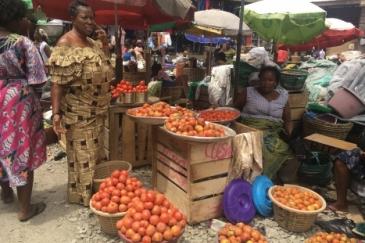
Although governments across the region have said food items are among a list of essential items that can move freely, a senior research fellow at the International Food Policy Research Institute, Antoine Bouet, said most of the trade in the country are done informally and in small quantities.
Thirty per cent of perishable produce and livestock traded in West Africa have been lost due to restrictions in movement caused by the COVID-19 pandemic.
This is according to data collected by the Permanent Interstate Committee for Drought Control in the Sahel (CILSS) and sighted by Reuters.
CILSS explained that the disruption in the movement of fruits, food items and domestic animals for consumption is as a result of market closures and transport delays.
The Burkina Faso-based institute notes that this was not a universal trend however.

Although governments across the region have said food items are among a list of essential items that can move freely, a senior research fellow at the International Food Policy Research Institute, Antoine Bouet, said most of the trade in the country are done informally and in small quantities.
These products are moved either in transport vehicles or across land borders, where they are subjected to health checks.
“Very often, these measures consist in the screening of trucks crossing the border while movement of people is forbidden,” he said. “These measures stop informal trade of small quantities,” he added.
The Nigerian Government still maintains an inter-state ban, while land borders into the country have been partially closed since last August to check rice smuggling.